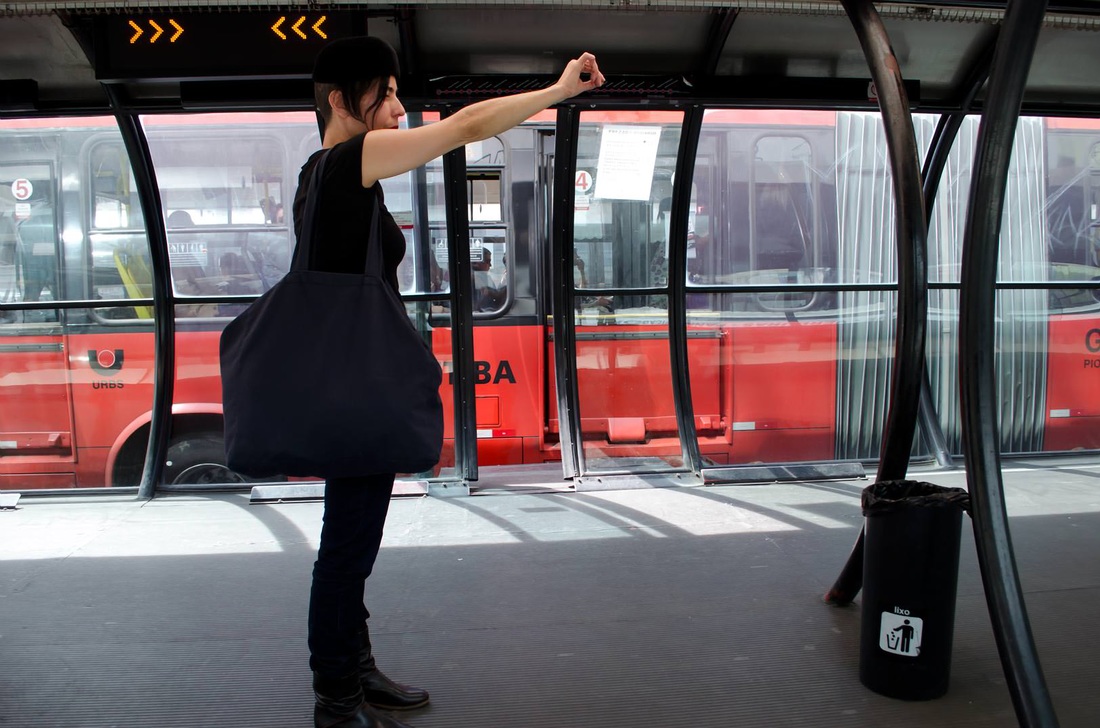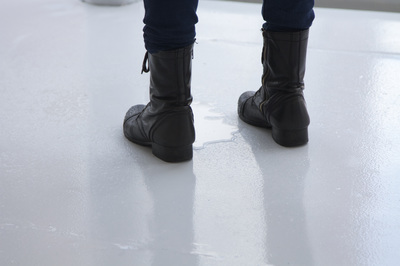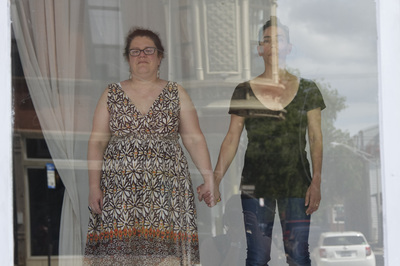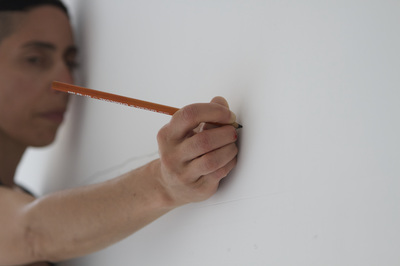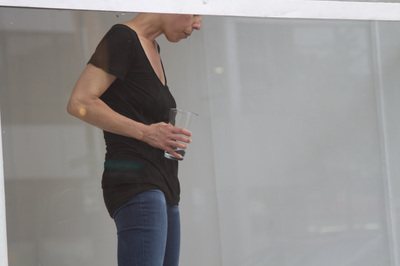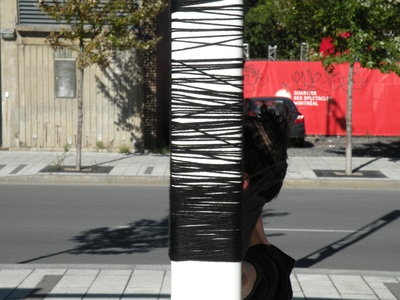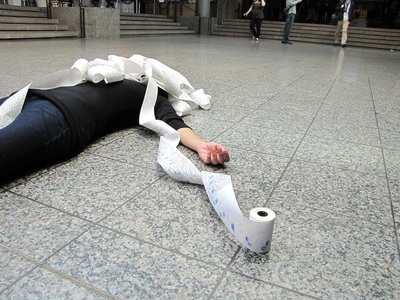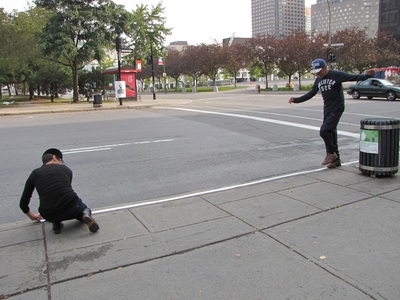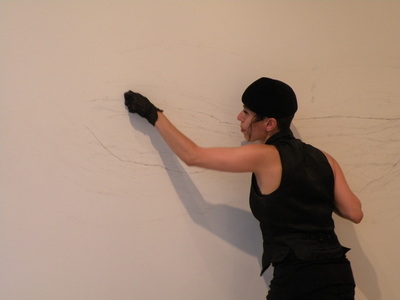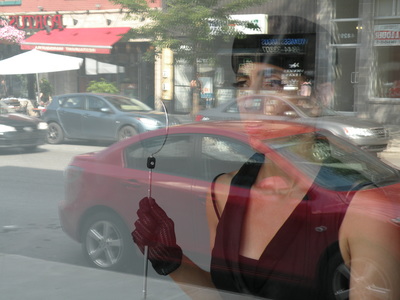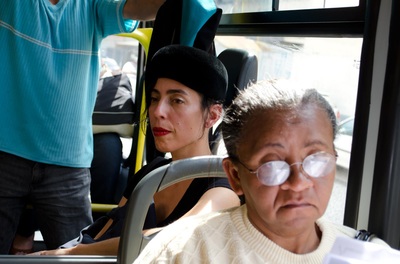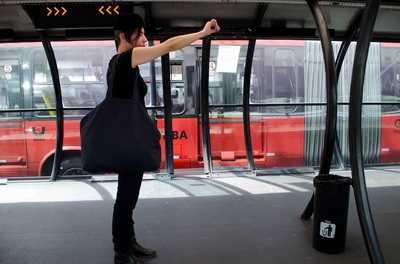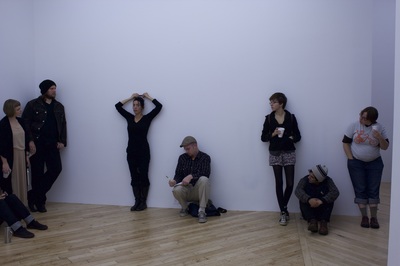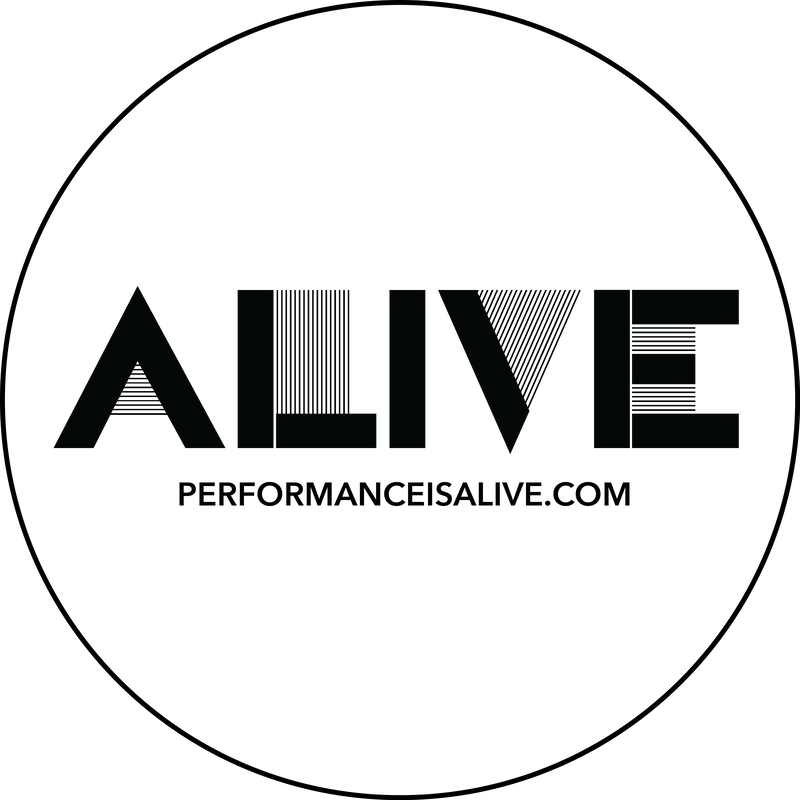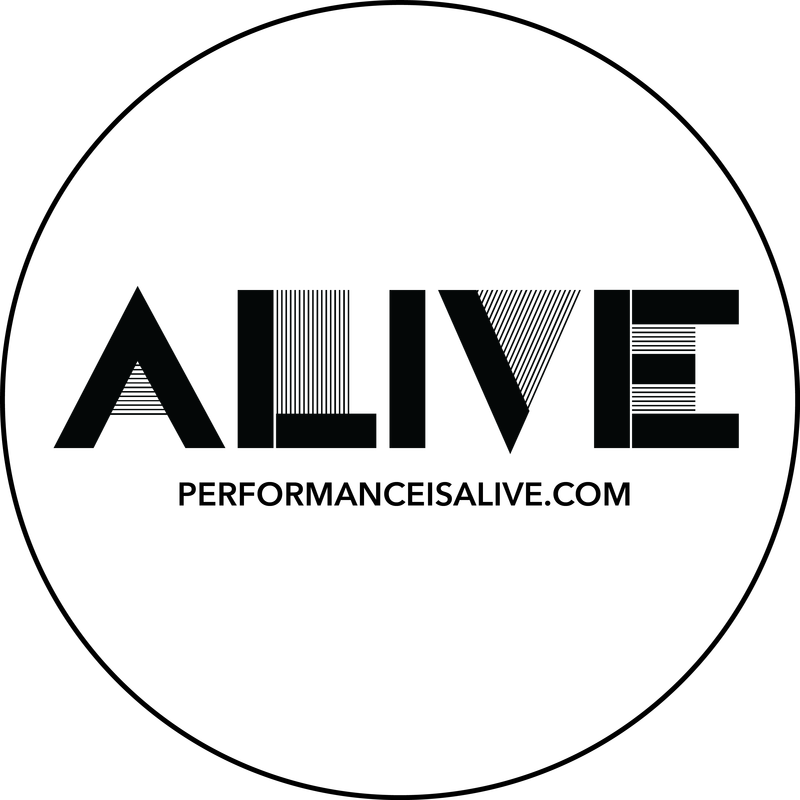|
Many performers choose to choreograph actions that allow them to embrace slowness. Ernesto Pujol and Marilyn Arsem are two current practitioners that come to mind when considering the necessity of slowness and silence. Both present focused and unwavering meditations on (seemingly) simple gestures. Our next featured artist, MARTINE VIALE, also occupies this similar performance landscape. I am particularly fascinated by Viale's body of work entitled, "Infiltration in Public Spaces". Viale's ability to interrupt the standard dynamic of public space into an enlivened and bodily architecture is quite wonderful. Viale is based in Montreal and presents both short form and durational actions around the world. In our interview, Viale explains her approach toward "process actions" and reveals details about her upcoming projects. I am pleased to share our conversation below! Enjoy! - Quinn QUINN DUKES: When did you start presenting performance art? MARTINE VIALE: I am a self-taught artist and at the beginning I didn’t even know that what I was doing was performance art or rather action art; I think it was 2001 and at first it was at very informal events. In 2003, I was invited to the 4th Performance Art Festival in Odense, Denmark and since then I have just continued. QD: Do you approach your public interventions differently than performances within galleries? If so how is it different? MV: It is a very different context. Doing work in galleries, even if I try to stay aware and to challenge myself in the work, it still remains a safe environment with people who are coming specifically to see art so roles are well established. In the public space it is another story completely; the boundaries are unclear, there is no protection and this can be as challenging as it is stimulating. It is complex to come to a place with the idea of making art in the traditional sense of the word and personally, I am more interested in approaching this context with subtlety. By the way, I am calling these works "Public Infiltrations". This defines accurately what I am doing, I am infiltrating what is already there. That being said, for me, it is not a question of doing one or the other but rather, moving in and out of the gallery frame. I am interested in how both contexts can inform each other and how I can keep learning things about my own work. QD: What role does repetition play in your work? MV: First of all, I need to say that I never repeat an action. I may re-use some elements of previous works if I feel that something is unresolved or needs to be deepened, but it always transforms. My approach towards durational works involves accumulation and sequencing of actions. Similar to the technique of collage or to a puzzle game, I layer several sequences of actions that can be partially repeated, mixed together and deconstructed in order to create other possibilities. QD: Can you elaborate on "process action"? What does that mean to you? MV: My entire body of work is about process and in relation to what I do, I actually dislike the word performance, as it indicates presenting something out of the ordinary. I often refer to action art or infiltrations when asked to describe what I do. For me, one work leads to another in a continuum and I am not interested in only presenting actions where I feel strong, in control and accomplished. The in between actions are even more important than the result of it and I truly believe that it is necessary to also be boring in the work. In these moments of transition, it gives space for both the performer and the viewer to reflect on questions like "What am I doing here?" If one makes the choice to stay beyond this question then one stays for the experience and not because of the necessity to be seduced by an image; this is what I mean by process action; the action is a starting point… QD: Are there other performances artists alive today that inspire your practice? MV: Reflecting on this question, I am thinking spontaneously of Tehching Hsieh for his radical vision and for the way he investigates the sense of time. Closer to me, here are a few names of artists that are inspiring me for who they are as people and for the singularity of their works; Marilyn Arsem, Alastair MacLennan, Vela Phelan, Rachel Echenberg, Sandrine Schaefer, Shannon Cochrane and Michelle Lacombe, with whom I started to collaborate a few months ago. QD: What is your next project? MV: Transit _ion… In January 2016, I am moving to Europe indefinitely and I am planning to embark upon a one-year project in which I will document and examine in depth the many aspects of being in transit. The project will also involve public infiltrations in selected European cities at different times throughout the year. So traveling around to find proper spaces will be an active part of the work. Some infiltrations will be really short while others may last for several hours, I can’t really know in advance. It will change depending on each context. Continuing to put emphasis on the subtle line between art and daily life, I am interested in how we define codes and how we redefine directions, rules, mannerisms, and attitudes in order to survive and adapt to new environments. MARTINE VIALE |
CONTRIBUTORSIan Deleón Archives
July 2023
|
|
MISSION // Based in Brooklyn, NYC, PERFORMANCE IS ALIVE is an online platform featuring the work and words of current performance art practitioners. Through interviews, reviews, artists features, sponsorship and curatorial projects, we aim to support the performance community while offering an access point to the performance curious.
Performance Is Alive is a fiscally sponsored project of Fractured Atlas, a 501(c)(3) charity. Contributions made payable to Fractured Atlas for the purposes of Performance Is Alive are tax-deductible to the extent permitted by law. |
